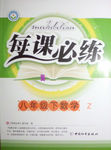题目内容
阅读理解
阅读下面的短文,根据短文内容选择最佳答案.
Except for a few times, Americans are not big present-givers. There's no exchange of presents among business people, and if one American tries to give another a present, it may look like that he wants to bribe(贿赂) him. Americans have learned that in some other countries people like to give presents to others, but among ourselves we don't see the need for presents.
Even friends may never exchange presents. When I go to foreign countries, I try to bring back little things for close friends, but nobody would feel unhappy if I didn't. I don't often remember a friend's birthday, and few people outside of my family remember mine. If someone gave me presents too often, I'd get unpleasant. But a present from a foreigner-that kind from his or her homeland-won't go wrong, except to government employees(政府职员) who can't be given presents.
You usually open a present at once and in front of the person who gives it except Christmas and birthday presents. You should only say “It's so nice. Thanks…” when you get Christmas or birthday presents.
You may want to bring a bottle of wine(葡萄酒) or flowers to a dinner party, but you're never asked to. Nobody will mind if you bring wine, but your friend may not use it that evening.
At Christmas we often give presents to our family and sometimes our friends. We also give presents to people who have been helpful during the year-doormen, babysitters, housecleaners, newspaper senders-anyone who has often helped us.
1.What does “close friends” mean in the passage?
[ ]
A.The friends who are very kind.
B.The friends who live close to each other.
C.The friends who were once classmates.
D.The friends who you like most.
2.What kind of presents don't Americans usually open in front of the givers? ________.
[ ]
A.The small presents.
B.Christmas or birthday presents.
C.The expensive presents.
D.The presents for dinner party.
3.Why do Americans also give presents to housecleaners at Christmas? ________.
[ ]
4.Which of the following do you think is right? ________.
[ ]
A.American business people don't want presents because they are rich enough.
B.The writer of this passage must be an American.
C.Everyone must give presents to one's family and friends at Christmas.
D.Government employees can get little presents from a foreigner.
5.What is the main idea of the passage?
[ ]
A.Present-giving in the United States.
B.Customs(习俗) in the United States.
C.American people and present-giving.
D.When and how to give presents.
解析:
|
1.这是一道词语理解题.根据短文第二段中Even friends may never exchange presents. When I go to foreign countries. I try to bring back little things for close friends可判断出,画线部分词语指的是你最喜欢的朋友,即亲密朋友. 2.这是一道细节题.由短文第三段中You usually open a present at once and in front of the person who gives it except Christmas and birthday presents.可知,美国人对圣诞节和生日礼品在赠送者面前是不打开的. 3.这是一道推理判断题.根据短文尾句We also give presents to people who have been helpful during the year-doormen, babysitters, housecleaners, newspaper senders-anyone who has often helped us.可推断出,在圣诞节美国人也给房子清洁工礼品的目的是为了感谢他们. 4.这是一道事实询问题.全文谈论美国人赠送礼品的风俗,作者还以亲身体验谈了自己赠送礼品的做法和感受.由此可推测出这篇短文的作者是美国人. 5.这是一道主旨大意题.这篇短文叙述了美国人赠送礼品的风俗习惯. |

 每课必练系列答案
每课必练系列答案
| |||||||||||||||||||||||||||||||||||||||||||||||||||||||||||||||
| |||||||||||||||||||||||||||||||||||||||||||||||||||||||||||||||||||||||||



